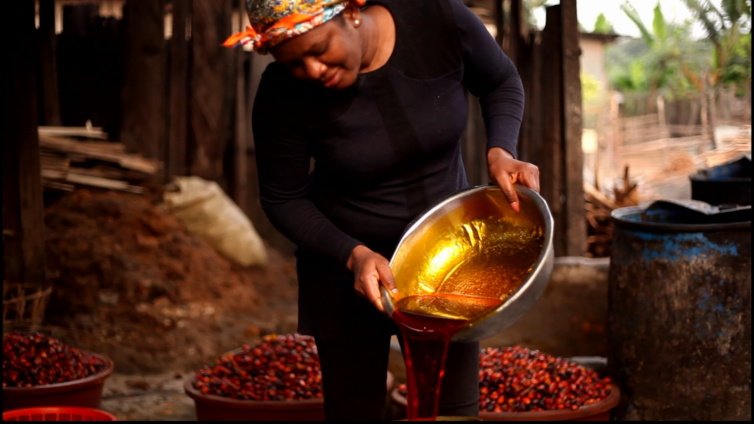Women in the manufacturing sector say their limited knowledge about market opportunities is hindering their abilities to trade across borders.
Despite the operationalization of the African Continental Free Trade Area, some women in industry are ignorant about its impact on their trading activities.
In the neighborhood of Odeneho Kwadaso, a community in the heart of Ghana’s second commercial hub, Kumasi, Michelle Ayongin Dassah runs a cosmetics factory.
She refines and processes shea butter into skin and hair care products.
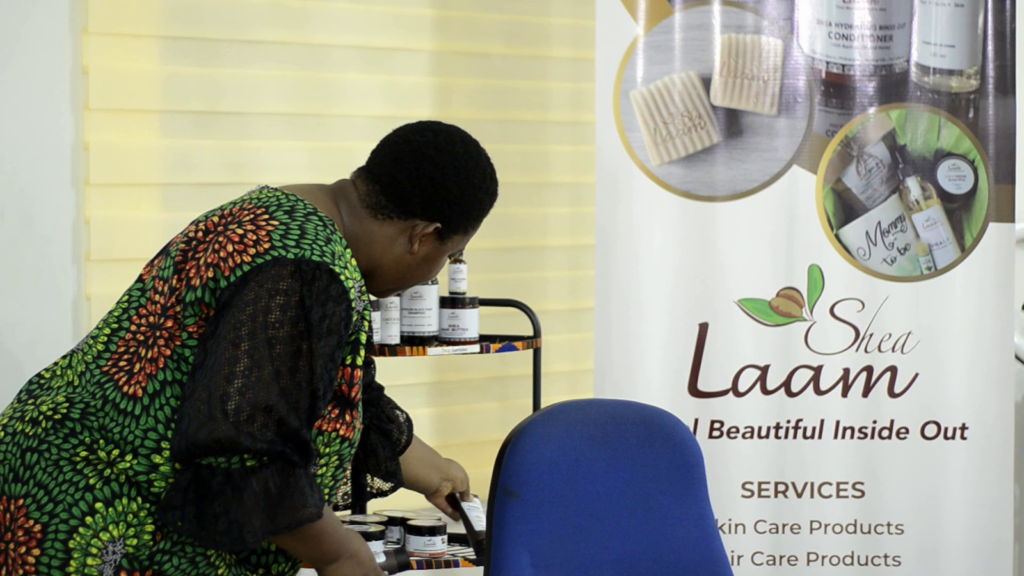
Michelle has outlets all over the Ashanti region. Though she has clients abroad, her plans to increase exports are deterred by high shipping costs.
“The major issue with trading around the continent is shipping. It cost more to ship 2kg to Nigeria than to the UK. Those are the issues we have to contend with,” she revealed.
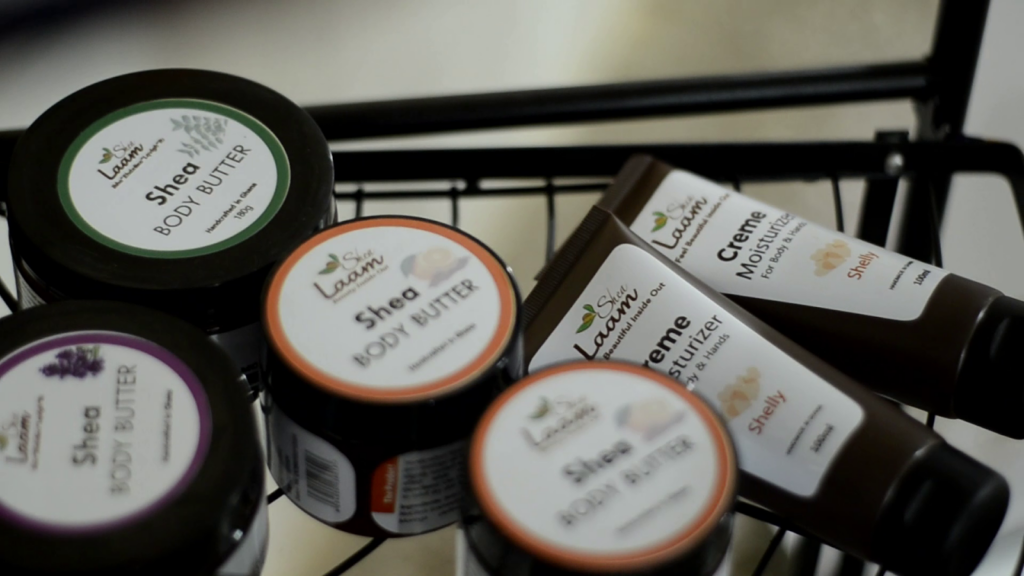
Michelle’s ACFTA journey
Michelle has been attending training sessions organized by the African Continental Free Trade secretariat in the Ashanti region of Ghana.
The AfCFTA is the world’s largest free trade area bringing together the 55 countries of the African Union (AU) and eight Regional Economic Communities (RECs).
It is to eliminate trade barriers and boost intra-Africa trade.
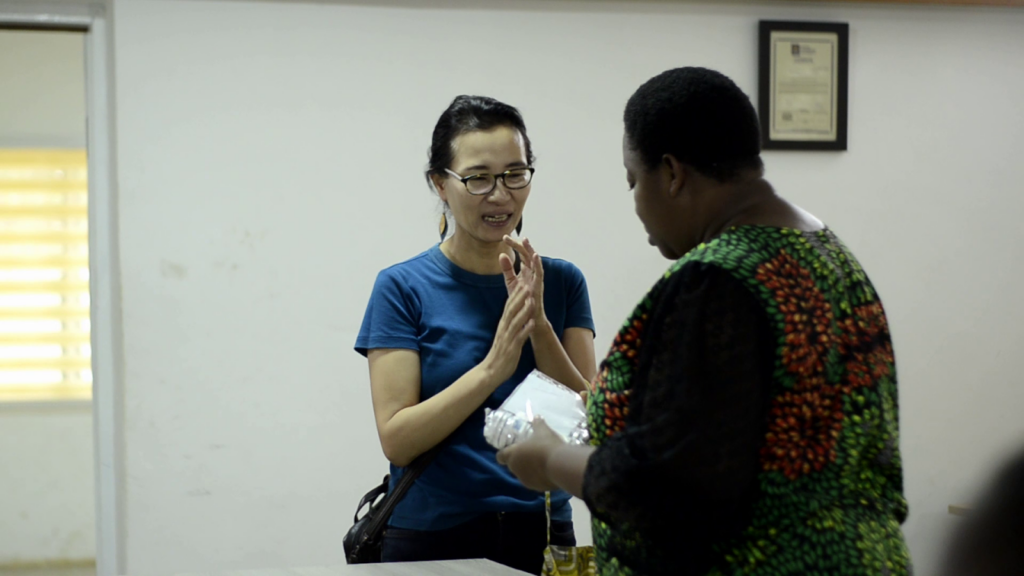
Cost of production
According to the Engine of Trade in Africa Report, there is a high price of doing business.
This is due to high costs of utilities, IT services, transportation and fuel as well as limited forms of transport.
One of Michelle’s banes to realizing her export dream is the cost of production.
She believes this goes against her competitiveness with foreign counterparts.
“ How are we going to compete with the others if Ghana opens up? I have a contract I am supposed to supply. I am producing at a higher rate. Even access to my funding is beyond 30%. But there are other countries doing less than 10%,” she said.
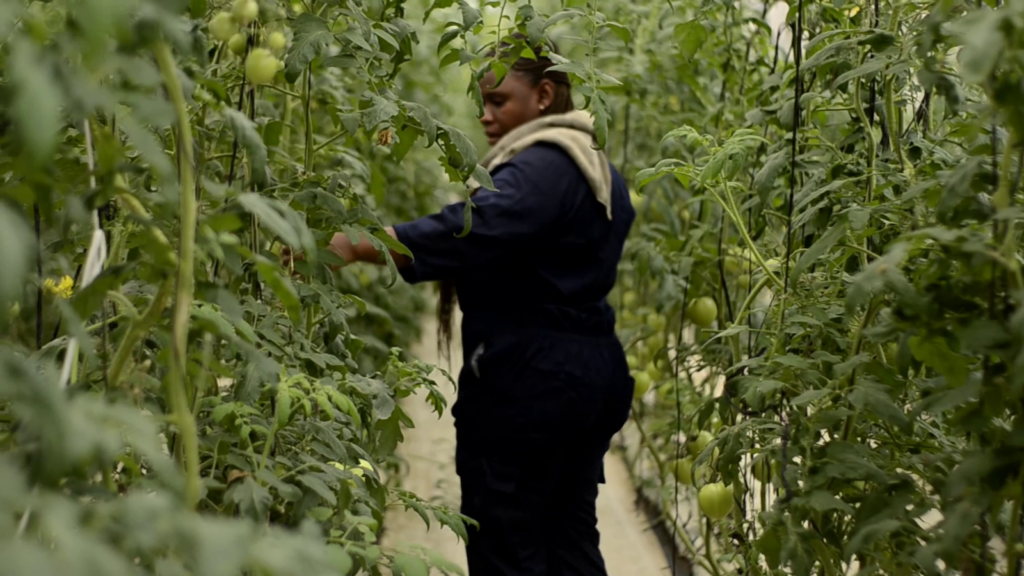
Greenhouse farmer, Olivia Amponsah Acheampong, faces similar challenges.
During power cuts, she buys water to irrigate her crops.
“ Yesterday, we were having issues with the lighting. We could not use the pump machine. It’s either manual or gravity. Sometimes if it prolongs, you have to buy water. The water you are going to buy, you may not know the salt content or what it entails. That might affect the plant,” she revealed.
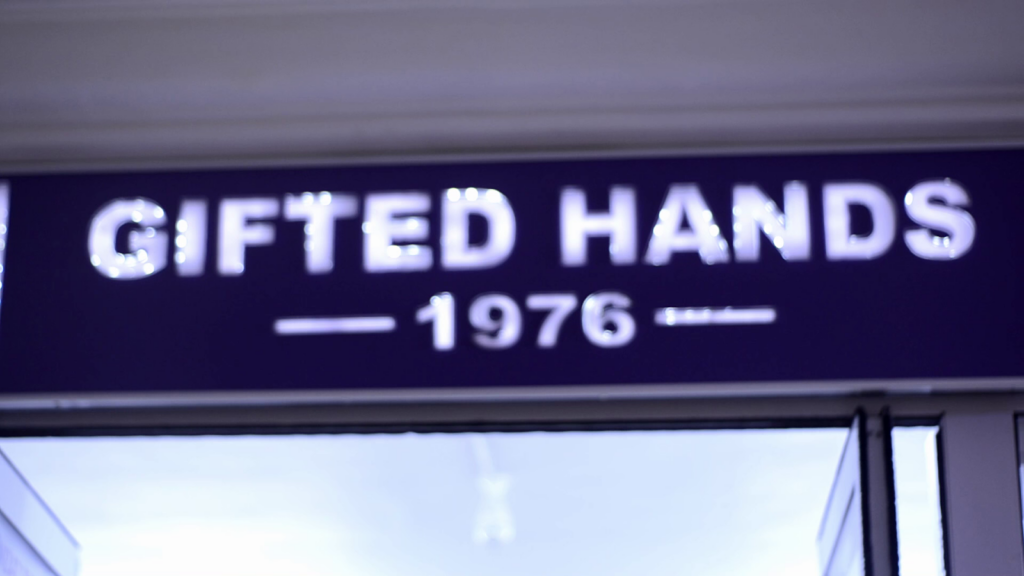
Raw material inadequacy
As a requirement for trading under the AFCFTA, goods must be 60% Ghana made.
But there is difficulty in accessing raw materials, especially for the fashion and apparel industry.
Fashion accessories company, Gifted Hands, sources its yarns and cords outside the country.
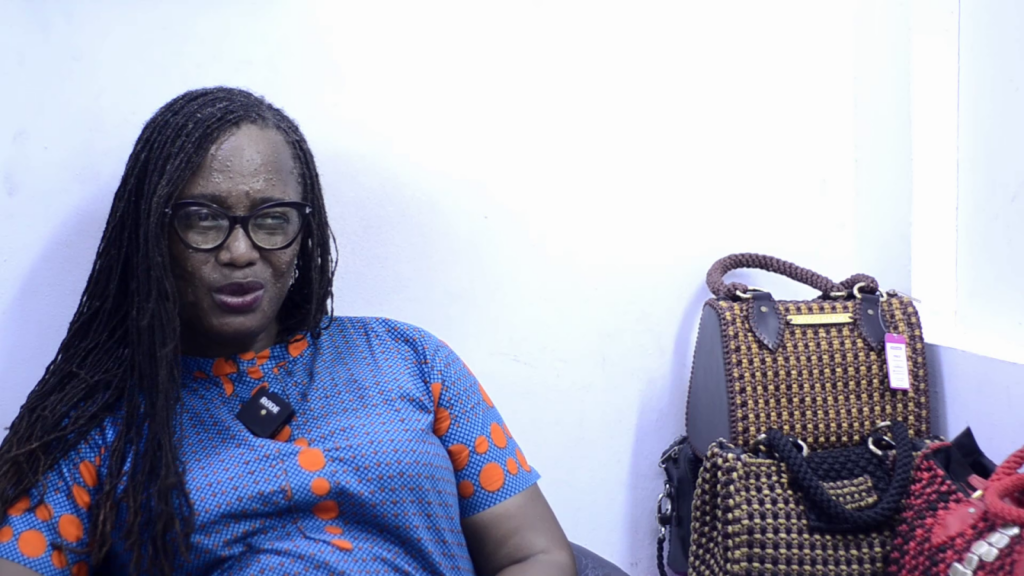
CEO, Ayesha Aba Baisie Akuetteh, is worried there are little or no raw materials for manufacturing businesses like hers.
“ Most of the items we use in manufacturing, it’s difficult to get them in Ghana. There are no raw materials for manufacturing companies based in Ghana. So your product may be either 30% or 20% Ghana-made,” she said.
Aba’s situation is no different from Vivian Awortwe, a shoemaker.
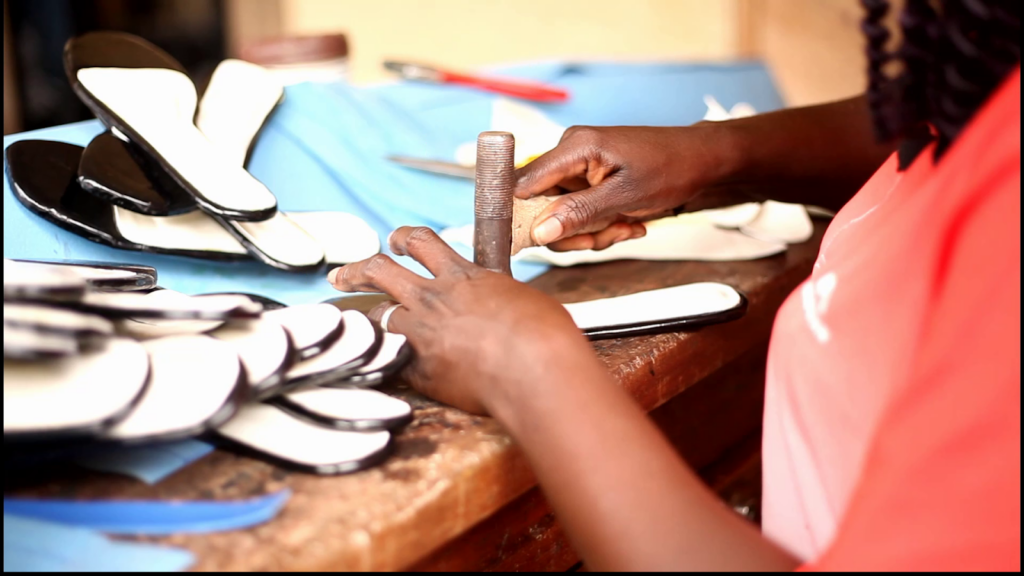
She says leather produced from cow hyde is rather consumed as a meal.
“ The raw materials I use in manufacturing my shoes are not from Ghana. They are pieces of leftovers from the Western countries. Some people in the Ashanti Region have made it their jobs by importing them. When you get hold of the pieces, you use your creativity to design them into shoes,” she revealed.
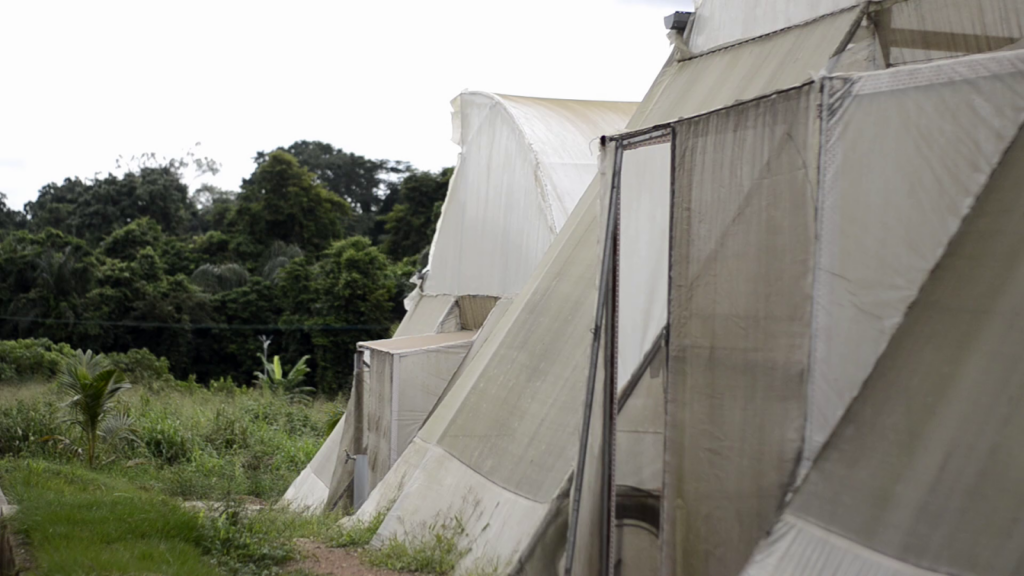
Inadequate Financial Resources
Olivia needs financial assistance to operate an open house farm. But this may come at a huge cost.
She is improvising with a bamboo greenhouse structure.
“ What I will really need for expansion is financial assistance. I will be able to secure vast land. Even if the cost of putting up the structure is very high, we have an improvised way for the greenhouse structure. You can put it up using bamboo, wood and net. We can improvise and it can help us increase our yield,” she said.
Bureaucracy
Product certification and export documentation are the most meticulous processes in the export requirement.
Businesses bemoan the difficulty in entering the international market and trading with ease.
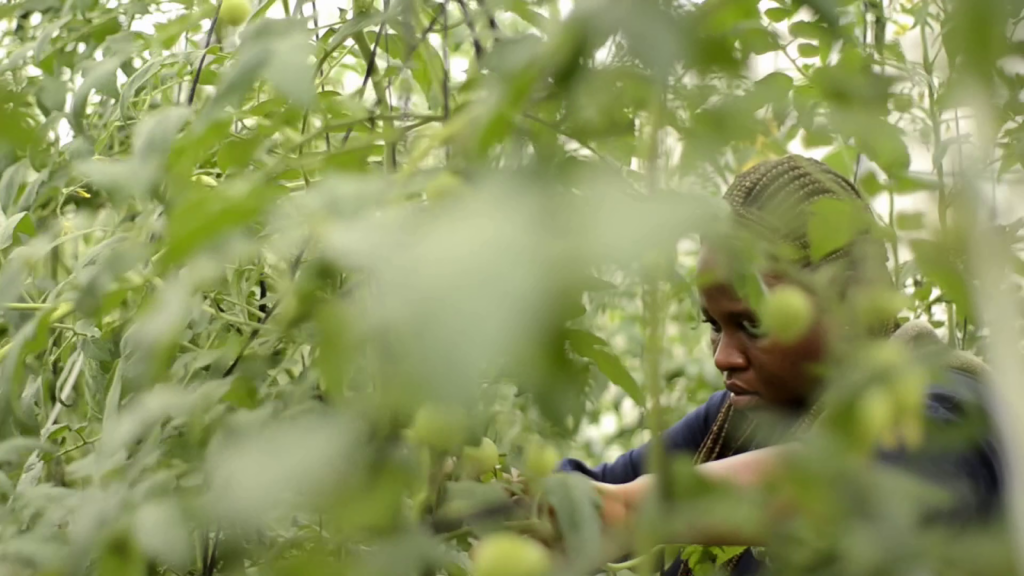
Without product certification, Olivia has lost potential international clients.
“ Sometimes, it’s very difficult to know your industry well as a small-scale business owner. You may not know the certificates or certifications needed. Many of us do not know how we can upgrade from small scale to commercial. More education should be done on that,” she pleaded.
Aba narrates the story of a colleague whose application has taken over 2 years.
She is worried she might be hindered too.
“ I have a friend who is into the manufacturing of cosmetics. She has already put in an application. From last year till now, her application has still not gotten to the approval stage,” she revealed.
Limited information
In Burkina Faso, the Engine Africa Report recognizes access to information as a bottleneck that affected women's ability to take advantage of any new trade opportunities.
In Ghana, among female business owners are semi-literates who bemoan limited access to information, custom regulations and procedure.

Semi-literates like Vivian Awortwe, a shoemaker for 17 years, cites literacy disparities as a major barrier.
She laments the non-inclusion of the informal economy for opportunities.
“ Those of us semi-literates, we hardly hear of any opportunities. They are rather given to our colleagues who are fluent in the English language. That is the situation in Ghana. When any opportunity arises, the elites are considered first,” she bemoaned.
Businesses outside the capital of Ghana, Accra, seldom have access to training opportunities.
Olivia wants training to be extended to other regions.
“ Most of these training takes place in Accra. The transportation and accommodation, you may not even get the time to travel,” she said.
Equipment not enough
Limited access to agricultural inputs, technologies and extension services hamper women’s effectiveness and productivity.
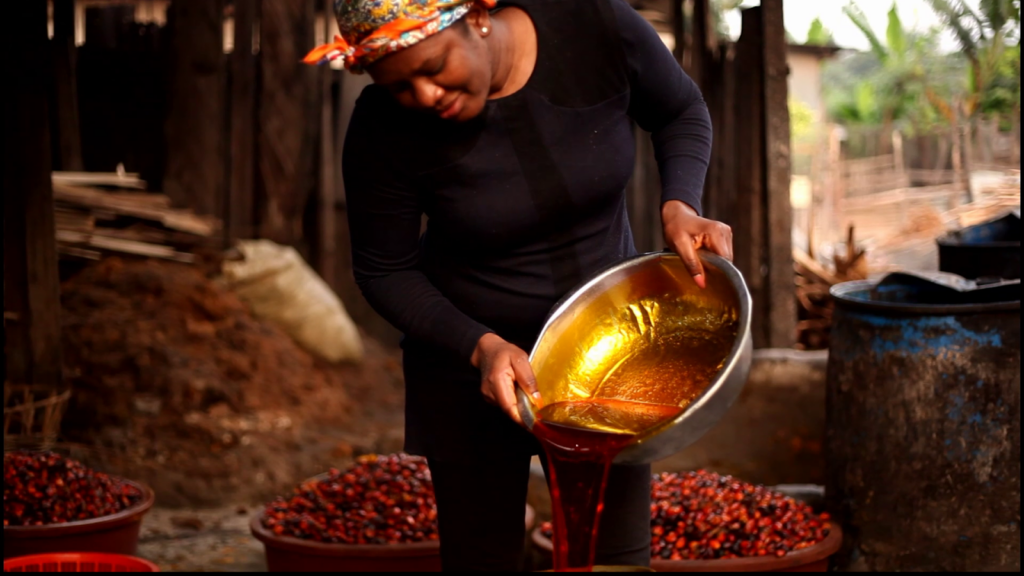
Akosua Amevor is CEO of KeshiKozy Company Limited, a palm oil producing firm.
She is hindered to move up the value chain, in producing value-added palm oil.
“ What we are doing here is being done manually. It is very cumbersome. If we could get machines, we will be able to produce more,” she said.
Networking for success
Vivian wants a professional network and association to be created for female-owned businesses.
“ Sometimes, all you need is an individual to link you. We are ever ready to network. But who do you go to? If things are brought to our level, we can understand and take advantage of opportunities,” she said.
Both Aba Baisie and Vivian say an enabling environment for their businesses to thrive will help them make the most out of the AFCTA, which will aid their impact of assisting and employing under-privileged women.
“ I produce sacks of footwear in a day. I plan to support less privileged people to earn a livelihood. They can either sell for me or I teach them how to manufacture footwears”.
Aba Baisie adds “ In my own small way, I have been able to create jobs for our youth. I employ people who have finished senior high schools”.
But the Ghana Standards Authority is mandated to ensure high quality of goods are produced in Ghana.
The Authority outlines processes businesses have to go through to get products certified.

Regional Manager, Samuel K. Frimpong observes most businesses instead fall back at the documentation stage of the certification process.
This process requires businesses to produce a detailed quality manual of their business operations.
“The application and documents review are the requirements. Most times that is where the delay is. You know, in our part of the world; documentation is a problem. Asking someone to put things on paper always becomes a problem,” he revealed.
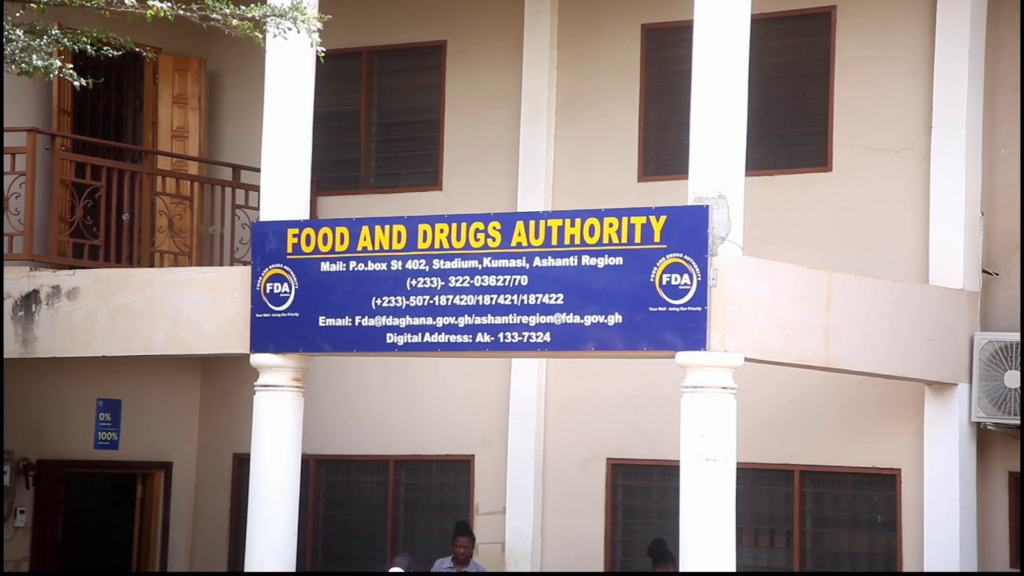
Similarly, the Food and Drugs Authority says some businesses fail to address queries that are raised when products undergo scrutiny.
Regional Manager, John Laryea Odai-Tettey, said the products go through a lot of scrutiny.
“These include the label and content evaluation. The laboratory analysis will also have to take place. So whatever you miss in the process, you will be asked to replace or address. Queries are raised. Often times, people fail to address the queries that are raised,” he revealed.
The Ghana Standards Authority and the Food and Drugs Authority, have affirmed their readiness to support businesses with product standardization and certification.
“From the date of inspection till the day you get your license, all things being equal, it should take you sixty days,” he assured.
John Odai Tettey adds “We are all poised for action. We need to ensure whoever visits our office is assisted appropriately to get things done. Because we are talking about the health of the consumer. The safety and quality of the product should be ascertained,”
Latest Stories
-
Omane Boamah leads Ghana to join Burkina Faso in honoring Sankara and Rawlings at historic memorial ceremony
2 hours -
I was 20 when I played for Ghana’s U-17 team – Charles Taylor
4 hours -
JoySports Editor Fentuo Tahiru launches Tumu Community Cup set for May 24
4 hours -
Joseph Taylor breaks Ghana’s 29-Year 400m national record with sub-45s run
4 hours -
Greater Accra public lands: Government to set up Commission of Inquiry
5 hours -
Cleanliness to be used for measuring performance of MMDCEs – Mahama
5 hours -
You are now a beacon of hope – Nungua Mantse to President Mahama
5 hours -
‘Smart formalisation’ holds the answer to Africa’s problems – Bawumia
5 hours -
President Mahama assures chiefs and people of Greater Accra of good roads
5 hours -
Mahama announces plans to upgrade Greater Accra Regional Hospital to Teaching Hospital
5 hours -
‘Stop boasting amidst debt’ – Walewale MP chides government
5 hours -
Walewale MP accuses John Jinapor of dubious procurement amid energy sector concerns
5 hours -
Toobu urges humane and collaborative approach to tackling street begging
6 hours -
26-year-old cleaner jailed 36 months for stealing $5k
6 hours -
Herdsman in police custody over cattle theft
6 hours

